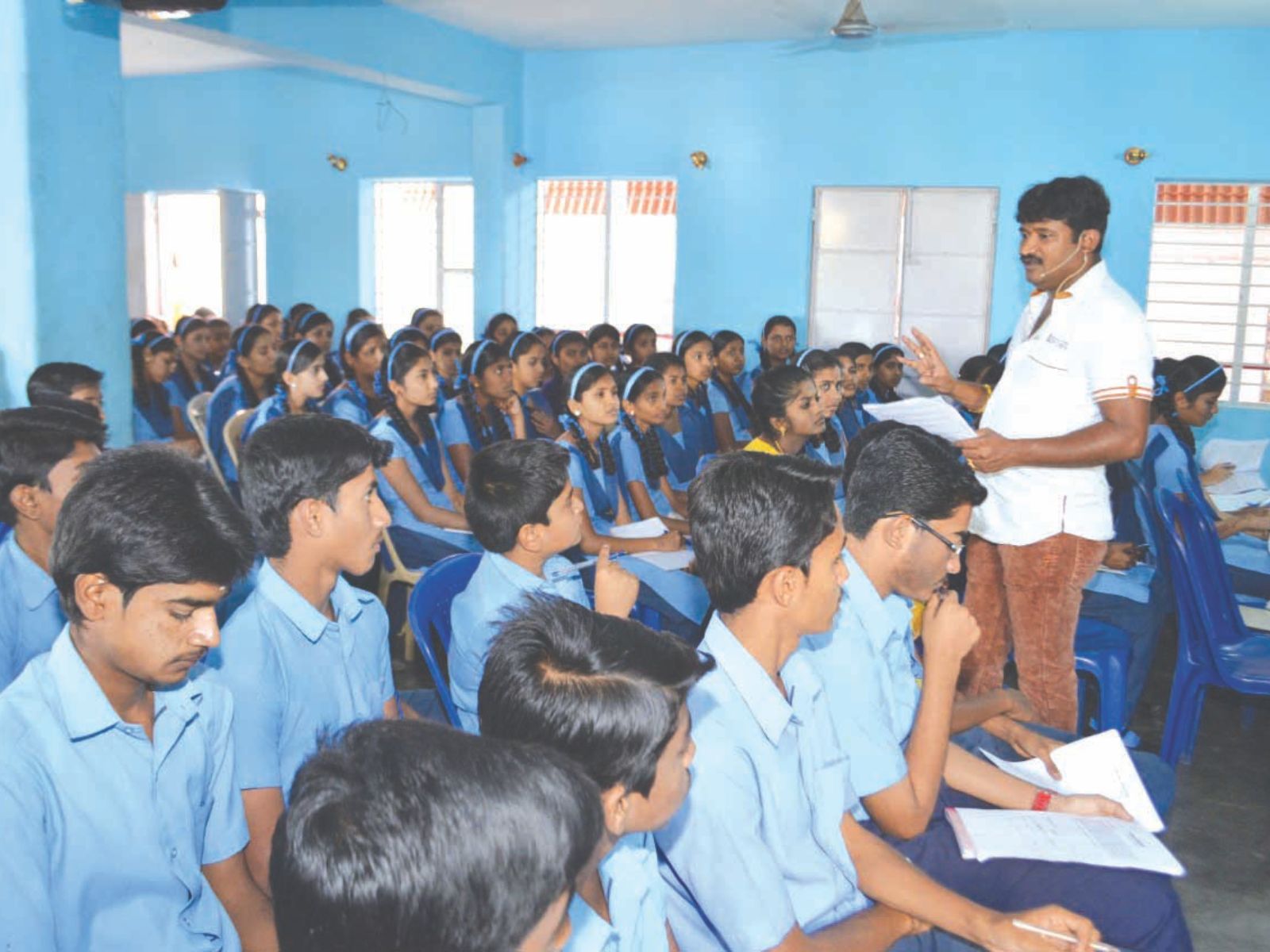No products in the cart.
Karnataka: Internal Languages War
– Reshma Ravishanker (Bangalore)

Presented to the nation on july 29, 2020, after a hiatus of 34 years, the 66-page National Education Policy (NEP) 2020 based on the 484-page draft of the Dr. K. Kasturirangan Committee was widely acclaimed as a visionary policy document which mandates a slew of reforms to revolutionise India’s moribund education system.
Indisputably, although NEP 2020 mandates an alphabet soup of government committees to supervise and monitor Indian education — a strategy criticised by EducationWorld — it contains several commendable, overdue mandates. Among them: compulsory universal early childhood education; compulsory vocational education in primary-secondary schools; departure from rote learning to analytical learning in primary-secondary education; institutional autonomy and research focus in higher education etc.
However ill-advisedly, NEP 2020 also resurrected the ghost of the three-languages learning formula for all school children. Several state governments of peninsular India have interpreted this provision as imposition of Hindi, the national language and dominant language of the populous but socio-economically backward BIMARU (Bihar, Madhya Pradesh, Rajasthan and Uttar Pradesh) states, upon the states of southern India.
This issue which had provoked riots and threats of secession in the 1960s had then been resolved by adoption of English (aka Inglish) as the associate national and link language of India. Reiteration of the three language formula in NEP 2020 has prompted Tamil Nadu and Karnataka to reject NEP 2020 and promulgate their own SEPs (state education policies). Following Tamil Nadu’s lead which enacted its SEP last month, the Congress-ruled Karnataka government is studying a draft SEP 2025 presented to it on August 8 by a committee chaired by former University Grants Commission chairman Sukhdeo Thorat. The Karnataka draft SEP (not released officially) reportedly recommends that all children learn only two languages — mother tongue or Kannada and English. This has generated Karnataka’s own language wars.
The proposal in Karnataka’s SEP for children to learn only in mother tongue or Kannada until class V and even upto class XII, has drawn sharp criticism. “Proposals in this draft will take Karnataka children back at least 25 years in time. Mandating mother tongue or Kannada as the compulsory medium of instruction in all public and private primary schools is regressive. The Supreme Court in State of Karnataka vs. Associated Management of Schools (2014) clearly ruled that parents have the right to choose the medium of instruction for their children, and that the state cannot impose the medium of instruction. The two-language formula which allows for education in mother tongue goes against the state’s own agenda to promote Kannada as a compulsory language statewide. For instance, in schools which choose Urdu as the mother tongue and English as second language, Kannada will be neglected. There are sufficient studies that say learning three languages improves the cognitive capabilities of children. Moreover, under the draft SEP, the state government will prescribe its own textbooks of dubious quality. This will prove a setback for Karnataka students because national entrance test question papers for IIT-JEE and NEET are based on NCERT texts. This SEP draft is politically motivated, and the Thorat Committee has not kept children’s interests in mind,” says D. Shashi Kumar, general secretary, Associated Managements of Primary and Secondary Schools in Karnataka which has a membership of 20,000 private schools statewide.
B.N. Yogananda, director of the RTE Students’ Parents’ Association, a Bengaluru-based parents and activists body working towards better Right to Education (RTE) Act, 2009 implementation, also believes that the three language formula mandated by NEP 2020 should be retained in Karnataka’s SEP with Kannada made compulsory as one of the three languages. Moreover he queries why the SEP draft has not been released for public debate.
The report reached Chief Minister Siddaramaiah’s office a month ago. Why hasn’t the SEP draft been released for public discussion and debate? This is important to determine the status of Kannada which is Karnataka’s official language. My own sentiment is that the three language formula debated for decades and endorsed by NEP 2020, is in the interest of Karnataka’s children as it will enable them to learn their mother tongue, the state’s history and culture through Kannada and converse with and conduct business with citizens of other states through English. This issue needs to be thoroughly debated,” says Yogananda.
Meanwhile even as the state’s politicians incessantly debate languages to be imposed on tiny children — despite the Supreme Court having ruled on the issue over a decade ago — according to the latest UDISE+ Report 2024-25 released last month, Karnataka has the second highest number of secondary school (classes IX-X) dropouts (18.3 percent) after West Bengal (18.75).
Also Read: Karnataka issues daily 25-point safety checklist for school headmasters
Post Views: 118














Add comment